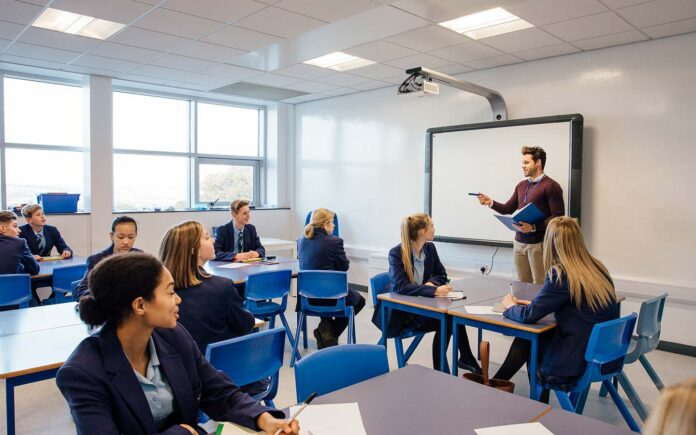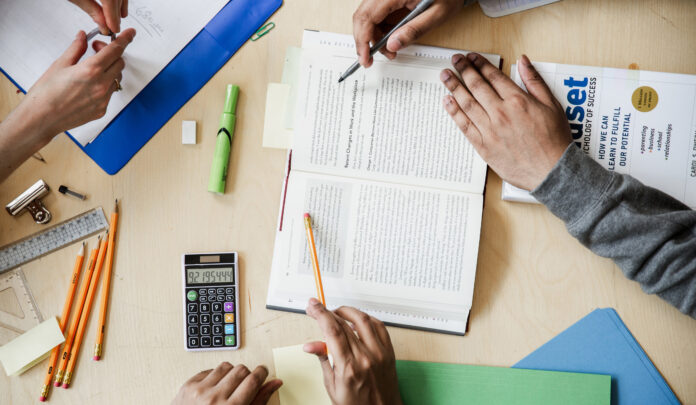A teacher’s influence can have a lifelong impact on a student. Teachers lay the foundation for a child’s education and help them discover their passions and strengths.
Therefore, teachers must deal with their students compassionately while holding them accountable and encouraging their growth to their full potential.
Teachers are the backbones of a society. However, being responsible for nurturing individuals can be challenging. Many teachers quit within the first few years, citing the stress of disruptive behavior and their inability to deal with demanding students.
Even though teaching is a respectable field, knowing these issues are familiar to all teachers can provide comfort. Following are some strategies to help skeptical teachers effectively deal with their students.
Enroll in teaching courses

Enrolling in teaching courses can help teachers enhance their skills and capabilities in effectively handling students.
These courses can provide you with up-to-date knowledge, innovative techniques, and practical strategies that you can apply in the classroom. You’ll also be able to understand the diverse needs of your students and cater to their unique learning styles.
However, allocating course time between grading papers and teaching can be tricky. This problem makes online teaching programs the best solution. Universities like Emporia State offer accelerated online programs where you can master the science of both Education Administration and Curriculum & Instruction.
This dual degree offers diverse topics and specializations, enabling you to choose courses relevant to your subject areas and teaching style.
Signing up for this online program takes little effort too. You can check out course options like https://online.emporia.edu/programs/ms-ci-cl-pre-k-12.aspx to enroll. This will help you upgrade your skills and create an engaging learning environment to support the growth and development of your students.
Make your classroom a safe space

Teachers should help students figure out which learning methods work for them and empower them to be advocates for their learning by teaching them how to ask for help. For this, they need a safe environment.
Creating a safe space in the classroom can help you handle your students better by reducing disruptive behaviors, which enables you to foster a positive relationship with them.
Students who feel safe in the classroom feel valued, respected, and empowered, leading to improved academic performance and overall well-being. They are more willing to take risks, ask questions, and share their thoughts and ideas with their peers and the teacher.
This engagement leads to increased motivation and a sense of belonging, which can lead to improved academic performance and better mental health outcomes.
You can implement various strategies to create a safe learning environment for your students, such as rules about respect, inclusion, and kindness.
You can promote inclusivity by integrating culturally responsive teaching practices from different backgrounds, including literature, history, and culture. You can encourage open communication and dialogue among your students to create a mutually respectful dynamic.
Encourage discussion

Teachers should encourage discussion in the classroom as it can have numerous benefits for their students. A study by the National Research Council proves the effectiveness of class discussions.
Students who engage in classroom discussions are more likely to develop critical thinking skills, build strong relationships, and retain more information.
Encouraging discussion can help you handle your students better by improving their engagement, motivation, and sense of ownership over their learning.
Classroom discussion can provide a platform for your students to share their perspectives and ideas, which leads to a more interactive learning experience.
You can incorporate discussion prompts or questions encouraging critical thinking and analysis to spark thoughtful conversations. These prompts can relate to the topic you teach or more general questions that encourage students to share their experiences and perspectives.
Ask students for feedback

Asking for student input regarding the course and your teaching style is a great strategy to promote cooperation between you and your students. By asking for feedback, you can create a more inclusive and engaging learning environment, improve student engagement, and lead to better academic performance.
When you ask students for their input, you are willing to listen to and consider their perspectives. This open communication can create a sense of respect and trust between teachers and students, leading to a more positive and collaborative learning experience.
You can get your students’ input by using an anonymous survey or questionnaire at the beginning of the course to provide them with a platform to express their interests, concerns, and preferences without fear of judgment.
Afterward, you can use this information to adjust their teaching approach and course content to meet their student’s needs and interests better.
Use small incentives as motivation

Offering rewards for good behavior or academic achievement can motivate students to work harder and stay focused on their goals. Incentives can come in many forms, such as extra credit, certificates of achievement, or small prizes like stickers or pencils.
Small incentives can also create a sense of community in the classroom, as students work together to achieve common goals and celebrate each other’s successes.
By offering rewards for positive behavior, you can build focus in your students and avoid distractions. These rewards create a more productive learning environment where students focus on their work and engage in class discussions.
Nurture self-confidence

Self-confidence is a crucial trait that can significantly impact a student’s academic success. When students are confident in their abilities, they are more likely to take risks, speak up in class, and pursue their goals.
Nurturing self-confidence in your students can help them cope with setbacks and allow them to bounce back stronger.
A study published in the Journal of Educational Psychology found that self-confidence positively impacts academic achievement. It helps students set higher goals, work harder, and persevere through difficulties.
This result suggests that self-confidence significantly influences students’ academic success. By building and nurturing their self-confidence, you can help your students achieve their full potential by becoming lifelong learners.
You can nurture self-confidence in your students by promoting opportunities to develop their skills and showcase their talents through class presentations, extracurricular activities, or community service projects.
Conclusion
Teachers can inspire, motivate, and support their students to achieve their full potential. As a teacher, you play a vital role in shaping the lives of your students.
The next generation relies on you for their growth, and you should strive to educate them and nurture their development. Creating an inclusive classroom where students feel valued, respected, and supported would be the best way to fulfill your duty.






